
The Commodore 64, also known as the C64, is an 8-bit home computer introduced in January 1982 by Commodore International. It has been listed in the Guinness World Records as the highest-selling single computer model of all time, with independent estimates placing the number sold between 12.5 and 17 million units. Volume production started in early 1982, marketing in August for US$595. Preceded by the VIC-20 and Commodore PET, the C64 took its name from its 64 kilobytes(65,536 bytes) of RAM. With support for multicolor sprites and a custom chip for waveform generation, the C64 could create superior visuals and audio compared to systems without such custom hardware.
In computer architecture, 8-bit integers or other data units are those that are 8 bits wide. Also, 8-bit central processing unit (CPU) and arithmetic logic unit (ALU) architectures are those that are based on registers or data buses of that size. Memory addresses for 8-bit CPUs are generally larger than 8-bit, usually 16-bit. 8-bit microcomputers are microcomputers that use 8-bit microprocessors.
BBC BASIC is an interpreted version of the BASIC programming language. It was developed by Acorn Computers Ltd when they were selected by the BBC to supply the computer for their BBC Literacy Project in 1981.

The Commodore Plus/4 is a home computer released by Commodore International in 1984. The "Plus/4" name refers to the four-application ROM-resident office suite ; it was billed as "the productivity computer with software built in".
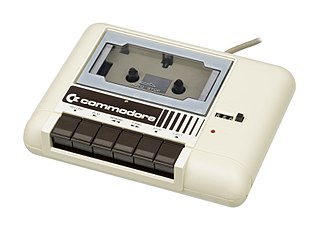
The Commodore 1530 (C2N) Datasette, later also Datassette, is Commodore's dedicated magnetic-tape data storage device. Using compact cassettes as the storage medium, it provides inexpensive storage to Commodore's 8-bit computers, including the PET, VIC-20, and Commodore 64. A physically similar model, Commodore 1531, was made for the Commodore 16 and Plus/4 series computers.
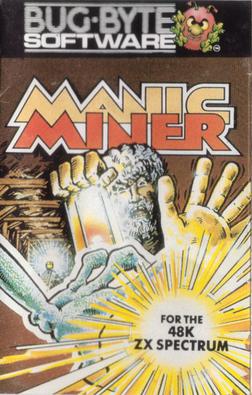
Manic Miner is a platform game written for the ZX Spectrum by Matthew Smith. It was published by Bug-Byte in 1983, then later the same year by Software Projects. The first game in the Miner Willy series, the design was inspired by Miner 2049er (1982) for the Atari 8-bit computers. Retro Gamer called Manic Miner one of the most influential platform games of all time, and it has been ported to numerous home computers, video game consoles, and mobile phones.

Thrust is a 1986 video game programmed by Jeremy C. Smith for the BBC Micro and published by Superior Software. The player's aim is to manoeuvre a spaceship by rotating and thrusting, as it flies over a two-dimensional landscape and through caverns. The gameplay of Thrust was heavily inspired by Atari's Gravitar.

The Commodore 64 Games System is the cartridge-based home video game console version of the popular Commodore 64 home computer. It was released in December 1990 by Commodore into a booming console market dominated by Nintendo and Sega. It was only released in Europe and was a considerable commercial failure. The C64GS came bundled with a cartridge containing four games: Fiendish Freddy's Big Top O'Fun, International Soccer, Flimbo's Quest, and Klax.

Frak! is a scrolling platform video game programmed by Nick Pelling for the BBC Micro and Acorn Electron and published by his own Aardvark Software in 1984. It was ported to the Commodore 64 the following year by "The B Team". The BBC and Electron versions were included on the Superior Software compilation Play It Again Sam 4 in 1987 and re-issued in budget form by Alternative Software in 1989.
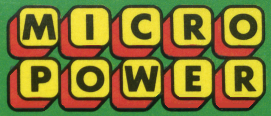
Micro Power was a British company established in the early 1980s by former accountant Bob Simpson. The company was best known as a video game publisher, originally under the name Program Power. It also sold many types of computer hardware and software through its Leeds 'showroom' or via mail order.
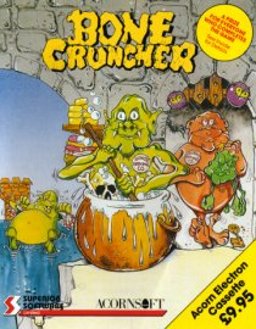
Bone Cruncher is a puzzle video game for the Acorn Electron, BBC Micro, and Commodore 64 first published by Superior Software in 1987. It uses the "rocks and diamonds" mechanics of Boulder Dash. An Amiga version was released in 1988.
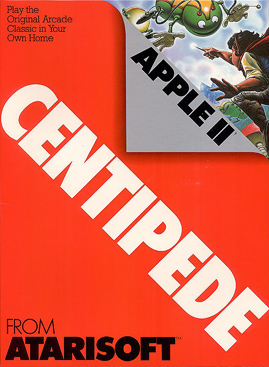
Atarisoft was a brand name used by Atari, Inc. in 1983 and 1984 to publish video games for non-Atari home computers and consoles. Each platform had a specific color for its game packages: video games sold for the Commodore 64 were in green boxes, games for the TI-99/4A in yellow, the IBM PC in blue, and so on.

Artic Computing was a software development company based in Brandesburton, England from 1980 to 1986. The company's first games were for the Sinclair ZX81 home computer, but they expanded and were also responsible for various ZX Spectrum, Commodore 64, BBC Micro, Acorn Electron and Amstrad CPC computer games. The company was set up by Richard Turner and Chris Thornton. Charles Cecil, who later founded Revolution Software, joined the company shortly after it was founded, writing Adventures B through D. Developer Jon Ritman produced a number of ZX81 and Spectrum games for Artic before moving to Ocean Software.

Twin Kingdom Valley is a text adventure game with animated pictures for the BBC Micro, Acorn Electron, Commodore 64, Commodore 16, and ZX Spectrum. It was released in 1983 by Bug-Byte.
Alligata Software Ltd. was a computer games developer and publisher based in Sheffield in the UK in the 1980s.

Doctor Who and the Mines of Terror is a game for the Amstrad CPC, BBC Micro and Commodore 64. It was first released by Micro Power on the BBC Micro in 1985, and on the Amstrad CPC & C64 in 1986.
Addictive Games was a UK video game publisher in the 1980s and early 1990s. It is best known for the Football Manager series of games created by company founder Kevin Toms. The company was originally based in Milton Keynes, England, and later relocated to Bournemouth, in southern England.
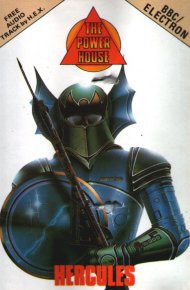
Hercules is a platform video game written by Steve Bak for the Commodore 64 and published by Interdisc in 1984. It was reissued in 1986 by Alpha Omega and ported to the Acorn Electron, BBC Micro, Commodore 16, Plus/4, and ZX Spectrum. Alpha Omega changed its name to The Power House shortly after publishing the game.
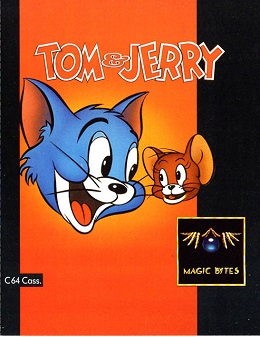
Tom & Jerry is a 1989 platform game developed and published by German company Magic Bytes. It is the first video game based on the cartoon of the same name, and was released in the United States and Europe, for Amiga, Atari ST, and Commodore 64 computers.















